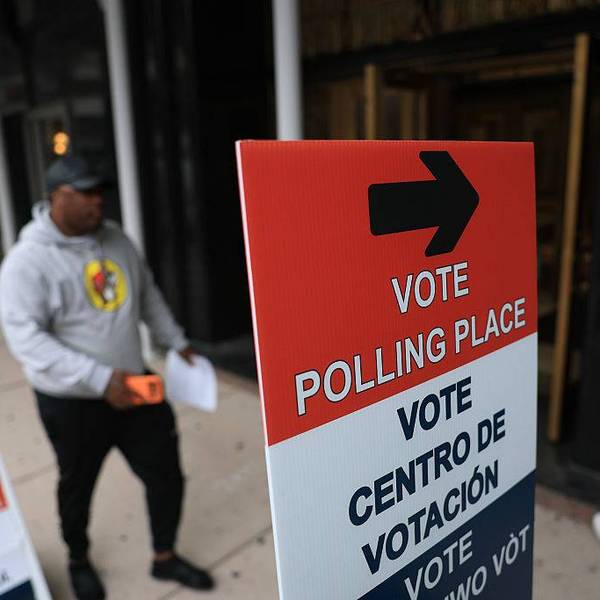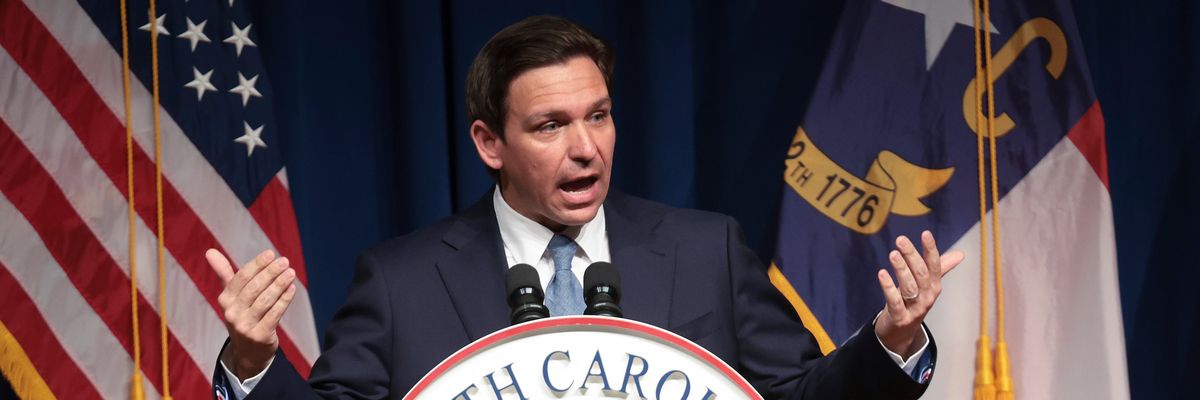As Republican presidential candidate Ron DeSantis' campaign spreads fake images of 2024 GOP rival Donald Trump embracing former White House Coronavirus Task Force chief Anthony Fauci, a leading U.S. consumer advocacy group on Tuesday urged the Florida governor to take down and disavow the photos and pledge to stop using artificial intelligence-generate deepfake imagery going forward.
Agence France-Presse reported last week that images showing Trump hugging and kissing Fauci in a DeSantis campaign ad were likely deepfakes, sparking condemnation from Republicans who support the twice-impeached, twice-indicted former president's 2024 candidacy.
The video was shared on Twitter by "DeSantis War Room," a "rapid response" account launched last August.
It wasn't just Republicans who sounded the alarm on the ad's use of deepfake technology. On Tuesday, the consumer advocacy group Public Citizen asked DeSantis' campaign to "pledge not to use deepfake technology to trick voters" and to take down the video of Trump and Fauci.
According to the group:
Generative AI and deepfake technology—a type of artificial intelligence used to create convincing images, audio, and video hoaxes—is evolving very rapidly. This is not a technology that advantages one candidate over another. Anyone can use it to deceptive effect. That's why all political players have an equal interest in preventing abuse of this technology.
Beyond the shared interest of all political candidates in not being victimized by a deepfake fraud, there is a broader public interest. Deepfake technology poses a genuine challenge to the future functioning of our democracy. If voters cannot trust the authenticity of what they see and hear online, it's hard to know how our democracy can work.
"Generative AI now poses a significant threat to truth and democracy as we know it," Public Citizen president Robert Weissman said in a statement. "Every party and candidate should commit not to employ deceptive deepfakes, which definitionally involve tricking the public into believing something that is not true."
Last month, Public Citizen also called for the Federal Election Commission (FEC) to issue a rule prohibiting candidates from using manipulative generative AI in campaign ads.
"One particularly alarming scenario is that an 'October surprise' deepfake video released shortly before Election Day could go viral—with no ability for voters to determine that it's fake, no time for a candidate to deny it, and no way to demonstrate convincingly that it's fake," Public Citizen said. "Both parties, their presidential candidates, and the FEC can prevent this (and many other) easily foreseeable abuses of the technology by disavowing and banning deceptive deepfakes in political campaigns now."




